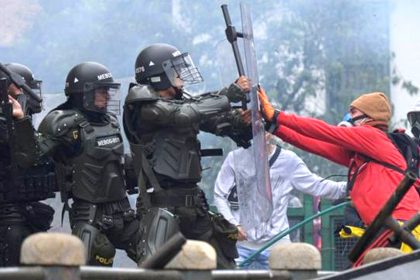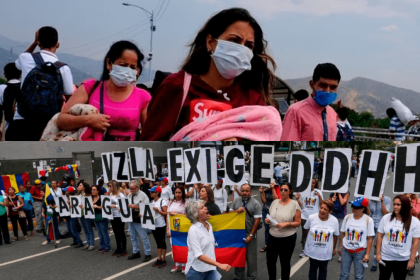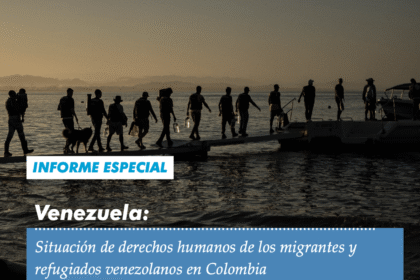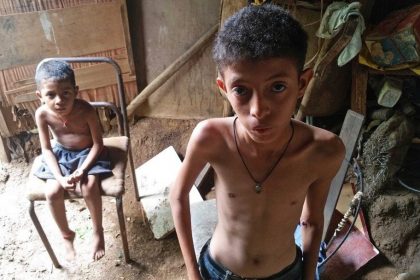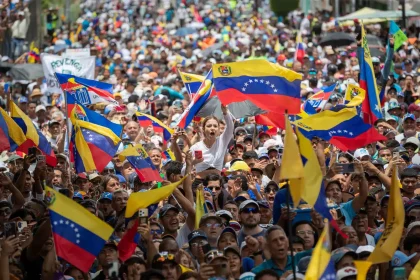ABOUT THE AUTHOR:

Rafael Uzcátegui
Sociologist and freelance editor. He is currently the General Coordinator of Provea.
Open letter on the visit to Venezuela of Ms. Alena Douhan, Special Rapporteur on the Negative Impact of Unilateral Coercive Measures on the Enjoyment of Human Rights

Caracas, 29 January 2021
Mrs. Alena Douhan
UN Special Rapporteur on the Negative Impact of Unilateral Coercive Measures on the Enjoyment of Human Rights
Dear Madam:
Through this public statement, we would like to welcome you to Venezuela, wishing you every success in your endeavors. We, a group of human rights defenders in the country, would like to express to you the following points of interest and concerns in regard to your visit to the country.
Since August 2017, the Office of the UN High Commissioner for Human Rights, in its report to the Human Rights Council, had requested the Venezuelan State to allow access to the country to the special procedures of the Human Rights Council and Regional Human Rights Mechanisms. In this sense, your visit is a positive step but insufficient -by itself- in the face of the Complex Humanitarian Emergency and the grave human rights situation in the country.
It is important to note that most of the 44 thematic mechanisms of the Human Rights Council, composed of rapporteurs, independent experts and working groups, can advise and investigate the human rights situation in Venezuela. Despite all of this, since the de facto government made a commitment to Mrs. Michelle Bachelet, during her June 2019 visit, to invite at least ten mechanisms in the term of two years, only your current visit has materialized. The aforementioned commitment was endorsed by the Human Rights Council in its Resolution 42/L4, in September 2019, proposing that at least the following thematic mechanisms would be invited: Working Group on Enforced or Involuntary Disappearances; the Special Rapporteur on the Independence of Judges and Lawyers; the Special Rapporteur on Extrajudicial, Summary or Arbitrary Executions; the Working Group on Arbitrary Detention; the Special Rapporteur on the Right to Food; the Special Rapporteur on the Right of Everyone to the Enjoyment of the Highest Attainable Standard of Physical and Mental Health; the Special Rapporteur on Torture and Other Cruel, Inhuman or Degrading Treatment or Punishment; and the Special Rapporteur on the Rights of Indigenous Peoples. However, none of them has visited the country, nor is there any information that the de facto government has formally invited them.
Despite the difficulties posed by COVID 19, it is clear that the de facto government has hindered the visit of other mechanisms, focusing only on making your visit to the country possible. It is a notorious fact that this government uses the sectoral sanctions imposed by the United States of America to hide its responsibility in the complex humanitarian crisis, caused by years of large-scale corruption, which have meant crimes against the patrimony of the nation that today are still unpunished. We recognize the negative impact of the sectoral sanctions on the Venezuelan people and support the request made by both the High Commissioner for Human Rights, Mrs. Bachelet, and the Inter-American Commission on Human Rights, to suspend or ease these sanctions in order to make available all possible resources in response to COVID 19 and to address other needs of the population.
On the other hand, in addition to hindering the visit of other thematic mechanisms, the de facto government has failed in its duty to cooperate with the rapporteurs and working groups that have sent communications to request official information on cases of human rights violations. In fact, since 2011 that government has received 84 communications from thematic mandates and has only responded to 39, meaning that more than half have been unanswered. Between February 2019 and November 2020, 16 communications were received by the Foreign Ministry and only two have been responded to, which shows the increasing lack of cooperation of that government with the UN thematic mechanisms.
We must also highlight that the de facto government criminalizes organizations and individuals’ collaboration with the UN mechanisms, thus hindering the work of informing and maintaining a respectful dialogue with the various instances.
In this regard, and following the mandate under Human Rights Council Resolution 27/21 on human rights and unilateral coercive measures, we hope you will include in the relevant information, all aspects related to the consequences of structural corruption and its impunity on the Complex Humanitarian Emergency. In this regard, we encourage Ms. Douhan to take the following actions:
- To study the evolution of corruption during the last two decades and its impact on the vulnerability faced by the Venezuelan people, as well as the levels of public spending destined to strengthen the repressive apparatus of the State.
- To consider the situation prior to the imposition of the sanctions, which led to the collapse of the Venezuelan health system and the situation of food insecurity suffered by the Venezuelan people today.
- To note the lack of transparency in public management and the denial of the right of access to information that prevents social control over public spending and public policies implemented by the State.
- To meet the independent media, research centers and civil society organizations, to verify their situation and, in particular, the policy of persecution against them, for investigating and reporting on State agents’ responsibilities for crimes related to the management of public spending.
We thank you for your attention to this letter and cordially bid you farewell:
1) Acceso a la Justicia
2) Acción por la Libertad
3) Amigos de Sotillo AC,
4) Anco AC Monagas,
5) Asociación Civil Mujeres en Línea
6) Asociación Venezolana para la Hemofilia
7) Caleidoscopio Humano
8) Cátedra de Derechos Humanos de la Universidad Centroccidental Lisandro Alvarado
9) Centro de Acción y Defensa por los Derechos Humanos (CADEF)
10) Cepaz
11) Ciudadanía con Compromiso AC,
12) Civilis Derechos Humanos
13) Clima21 – Ambiente y Derechos Humanos
14) Comisión Nacional de DDHH Federación de Colegios de Abogados de Venezuela Táchira
15) Comisión Nacional de DDHH Federación de Colegios de Abogados de Venezuela-Mérida
16) Comité de DDHH de la Carucieña (Barquisimeto)
17) Comunidad en Movimiento AC,
18) Comunidad Organizada de Sabana Larga
19) Comunidad Organizada Palo Gordo
20) Creemos Alianza Ciudadana – Táchira
21) Defensa en Acción
22) Defiende Venezuela
23) EXCUBITUS Derechos Humanos en Educación
24) EDEPA A.C.
25) Equipo de defensa de Derechos Humanos del estado Táchira (EDHET).
26) Espacio Público
27) Fedecámaras Monagas,
28) Federación Médica Venezolana Monagas,
29) FUNCAMAMA, Fundación de Lucha Contra el Cáncer de mama.
30) Fundación Aguaclara
31) Fundación de Egresados UNET
32) Fundación Diáspora Venezolana (Fundiasve)
33) Fundación La Gran Victoria,
34) Fundación Lucelia
35) Fundación para el Debido Proceso Fundepro
36) Fundación para el Desarrollo Integral FUNDESI
37) Fundación Pro-Defensa del Derecho a la Educación y la Niñez ( Funda-pden )
38) Fundaval
39) GobiérnaTec
40) Hearts On Venezuela
41) Instituto Mead de Venezuela AC,
42) La Choza del Espíritu Santo AC,
43) Labo Ciudadano
44) Laboratorio de Paz
45) Monitor Social AC
46) Movimiento Ciudadano Dale letra
47) Movimiento Vinotinto
48) Observatorio Global de Comunicación y Democracia
49) Observatorio Penal Mérida OPEM-DDHH
50) Operación libertad internacional
51) Organización Humanitaria Las Vírgenes
52) Organización Humanitaria Zona 10 AC,
53) Organización StopVIH
54) Prepara Familia
55) Programa Venezolano de Educación-Acción en Derechos Humanos (Provea)
56) PROMEDEHUM
57) Proyecta Ciudadanía
58) Proyecto 860
59) Red de Organizaciones de Derechos Humanos del Estado Anzoátegui. REDHANZ.
60) SenosAyuda A.C.
61) Sociedad Hominis Iura (SOHI)
62) Transparencia Venezuela
63) Una Ventana a la Libertad
64) Unión Afirmativa
65) Unión Vecinal para la Participación Ciudadana AC
66) Vicaría de DDHH de la Arquidiócesis de Barquisimeto
ABOUT THE AUTHOR:

Rafael Uzcátegui
Sociologist and freelance editor. He is currently the General Coordinator of Provea.



